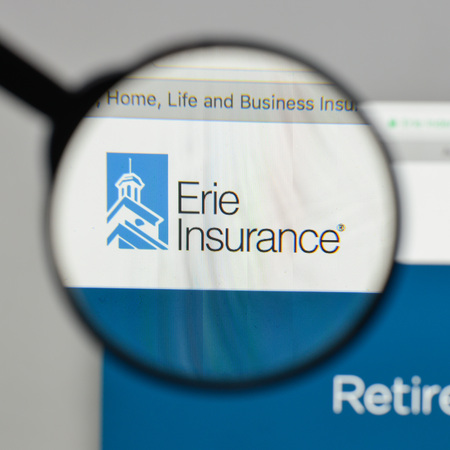Introduction to Public Liability Insurance
Public liability insurance is a fundamental type of business cover that provides protection for tradesmen and professionals in the UK. At its core, this insurance safeguards against claims made by third parties who may suffer injury or property damage as a result of your work activities. For anyone operating in trades such as plumbing, electrical installation, carpentry, or building, the potential risks are ever-present—whether working on-site, at a client’s premises, or in public spaces. The significance of public liability insurance lies not just in financial protection; it also underpins the trust and credibility between you and your clients. For UK tradesmen, carrying adequate public liability cover is often viewed as an essential standard of professionalism and is sometimes a contractual requirement when securing new jobs or working with larger firms. Without this coverage, one unforeseen incident could lead to costly legal fees and compensation payouts, potentially jeopardising your livelihood. In summary, understanding public liability insurance is crucial for every tradesman aiming to operate safely and responsibly within the UK’s regulatory and cultural landscape.
2. Who Needs Public Liability Insurance?
Public liability insurance is essential for tradesmen and women across the UK, as it provides crucial protection against claims of injury or property damage caused during the course of their work. But who exactly needs this cover? In essence, any professional whose business activities involve interaction with clients, members of the public, or third-party property should seriously consider obtaining public liability insurance.
Common Trades Requiring Cover
Below is a breakdown of typical tradespeople who generally require this form of protection, alongside practical UK examples:
| Trade | Why It’s Needed | Typical Example (UK) |
|---|---|---|
| Builders | Regularly work on client sites where accidental damage or injury can occur | A builder renovating a home in Manchester accidentally damages a neighbour’s fence |
| Electricians | Potential risk of electrical faults causing harm or property damage | An electrician rewiring a London flat causes an unexpected power surge damaging appliances |
| Plumbers | Pipes can burst or fittings may leak, leading to costly water damage claims | A plumber in Birmingham fits a faulty valve resulting in flooding at a customer’s property |
| Painters & Decorators | Spills and accidents can affect clients’ belongings or structures | A decorator in Bristol knocks over paint, ruining a carpet during a residential project |
| Carpenters & Joiners | Use tools and materials that may injure others or cause property damage on-site | A joiner in Leeds leaves equipment unattended, which trips a visitor on-site causing injury |
| Gardeners & Landscapers | Work outdoors and often use machinery near clients’ property or public spaces | A landscaper in Edinburgh damages underground cables while digging in a client’s garden |
| Handymen & General Maintenance Workers | Diverse tasks increase the likelihood of accidental mishaps impacting people or property | A handyman in Cardiff accidentally cracks a window during routine maintenance at an office building |
The Scope Beyond Construction Trades
It’s not just those in traditional construction roles who benefit from public liability insurance. Professionals such as cleaning contractors, pest control specialists, and even mobile beauty therapists operating in clients’ homes also face similar risks. For anyone providing services at customers’ premises, this cover acts as an important financial safeguard.
Summary: Who Should Consider Public Liability Insurance?
If your work involves visiting client locations, inviting clients to your workspace, or handling other people’s property, having public liability insurance isn’t just good practice—it’s often expected by clients and sometimes required by local councils or trade associations across the UK. Failing to have adequate cover can lead to significant costs and reputational damage if things go wrong.

3. What Does Public Liability Insurance Cover?
Public liability insurance is an essential safeguard for tradesmen in the UK, providing vital protection against a range of potential incidents that could occur during the course of your work. At its core, this type of insurance covers claims made by third parties—such as clients, members of the public, or property owners—who suffer injury or property damage as a result of your business activities. For example, if you are fitting a kitchen and a client trips over your tools, resulting in an injury, public liability insurance would cover the associated legal costs and compensation. Similarly, if you accidentally damage a customers expensive flooring while carrying out repairs, the policy would handle the cost of repairs or replacement. This coverage extends to incidents both on-site and at locations away from your usual place of business, ensuring you are protected wherever you operate. In summary, public liability insurance provides peace of mind by managing the financial risks linked to unforeseen accidents or errors that could otherwise have serious consequences for your livelihood.
4. Potential Costs and Typical Claims
Understanding the financial implications of public liability insurance is crucial for tradesmen operating in the UK. This section analyses common claim scenarios, their estimated costs, and the potential impact on your business if you are uninsured.
Common Claim Scenarios for UK Tradesmen
| Scenario | Description | Estimated Claim Cost (£) |
|---|---|---|
| Property Damage | Accidentally damaging a client’s property (e.g., broken windows, water damage) | £1,000 – £25,000+ |
| Bodily Injury | A member of the public trips over tools or materials and sustains an injury | £5,000 – £100,000+ |
| Third-Party Vehicle Damage | Causing damage to a parked vehicle while on-site | £500 – £10,000+ |
| Product Liability | A product supplied or installed by you causes harm or damage after completion of work | £2,000 – £50,000+ |
| Legal Defence Costs | Legal expenses incurred defending against claims (regardless of fault) | £1,000 – £30,000+ |
The True Financial Impact Without Adequate Insurance
If you lack sufficient public liability insurance, even a minor incident can have severe consequences. For example, if a client suffers a serious injury on-site and seeks compensation for medical expenses and loss of earnings, you could face a claim exceeding £100,000. Without insurance cover, these costs would fall directly on your business—potentially leading to bankruptcy or forced closure.
The Importance of Cover Limits
Most UK tradesmen opt for public liability cover limits ranging from £1 million to £5 million. When selecting your policy, carefully consider the types of projects you take on and the scale of risks involved. Underinsuring can leave you exposed to paying out-of-pocket if a claim exceeds your policy limit.
Cost-Benefit Analysis: Insurance vs. Uninsured Losses
| With Insurance (Annual Premium Example) |
Without Insurance (Potential Out-of-Pocket Cost) |
|
|---|---|---|
| Minor Property Damage Claim | £150–£250 per year premium |
Up to £25,000 per incident |
| Bodily Injury Claim | £150–£250 per year premium |
Up to £100,000+ per incident |
This analysis clearly shows that the cost of adequate public liability insurance is minimal compared to the potentially crippling financial impact of facing a claim without cover. For UK tradesmen, investing in appropriate insurance protection is not just prudent—it is essential for long-term business viability.
5. Legal and Contractual Requirements
Understanding when public liability insurance is a legal or contractual necessity is vital for tradesmen operating in the UK. While public liability insurance is not legally mandated by UK law for all trades, there are specific circumstances where holding this cover becomes an obligation, either directly through legislation or indirectly via contracts and tender processes.
Is Public Liability Insurance Legally Required?
For most self-employed tradesmen, public liability insurance is not a statutory requirement. However, certain professions—such as those involved in high-risk industries or working with local authorities—may find it effectively compulsory. For example, some licensing bodies or regulatory authorities may stipulate proof of insurance as part of their compliance criteria. Failing to obtain cover in these instances can result in denied licenses or the inability to legally carry out work.
Contractual Obligations from Clients
Beyond legal requirements, many commercial clients, contractors, and property owners will only hire tradespeople who can provide valid proof of public liability insurance. This is especially common on construction sites, council projects, and larger renovation contracts. The client’s contract may specify minimum levels of indemnity—often £1 million or higher—and insist that your policy remains active throughout the project duration. Without this evidence, you may be excluded from bidding or continuing work.
Local Authority and Council Work
If you intend to work for local councils or participate in government-funded schemes, it is standard practice for these bodies to require up-to-date public liability insurance as a precondition. This protects both the public purse and ensures accountability should any accidents occur on site. Expect regular audits and requests for updated policy documentation before payment is released or access granted to municipal properties.
Summary: When Cover is Non-Negotiable
While not universally required by law, public liability insurance often becomes a de facto necessity due to industry standards and contractual expectations within the UK. It acts as a gatekeeper for professional opportunities with reputable clients and local authorities. Tradesmen should always check client contracts and industry guidelines to ensure full compliance, avoiding costly delays or missed business opportunities due to insufficient cover.
6. Choosing the Right Policy
Comparing UK Public Liability Insurance Providers
With a wide range of insurers on the UK market, selecting the right public liability insurance provider is crucial for tradesmen. Start by researching established insurers with solid reputations for claims handling and customer service. Check independent reviews and consult industry peers for recommendations. Many British trades associations, such as the Federation of Master Builders (FMB), offer guidance or preferred partnerships that may include discounted rates or enhanced cover.
Understanding Policy Limits
The policy limit dictates the maximum amount your insurer will pay out in the event of a claim. In the UK, most tradesmen opt for cover ranging from £1 million to £5 million, depending on their work’s scale and client requirements. Some contracts—especially those with local councils or large commercial clients—may stipulate minimum levels of cover. It’s essential to balance affordability with adequate protection; underinsuring could leave you personally liable for costs that exceed your policy limit.
Key Features to Look Out For
- Exclusions: Scrutinise what isn’t covered—such as damage caused deliberately, faulty workmanship, or injuries to employees (which require separate employers’ liability insurance).
- Excess: Assess how much you’ll need to pay towards each claim; a lower excess may increase premiums but can make budgeting easier if incidents occur.
- Add-ons: Consider optional extras like tool cover or legal expenses insurance if they suit your business needs.
Tips for Ensuring Adequate Protection
- Always declare your business activities accurately—misrepresentation can invalidate your policy.
- Review your policy annually or when your business changes (e.g., taking on bigger jobs or employing staff).
- Seek clarity on how claims are processed and how quickly support will be provided in an emergency.
The Bottom Line
Choosing the right public liability insurance policy as a UK tradesman involves more than just picking the cheapest quote. By carefully comparing providers, assessing limits, and understanding terms and exclusions, you ensure both compliance and peace of mind while working on site or at clients’ premises.


